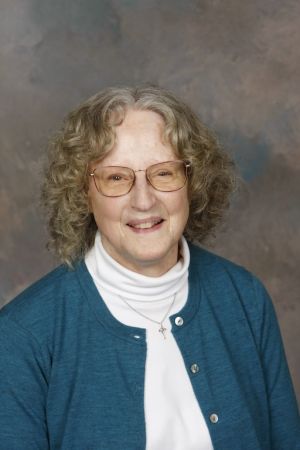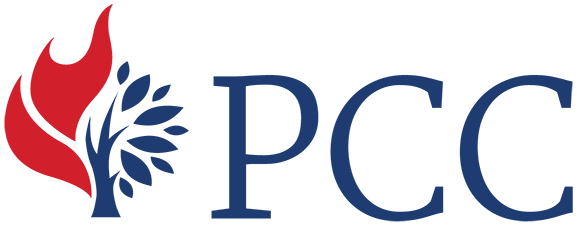What are some key moments of your faith journey and how have they informed the person you are today?
Growing up in a Presbyterian family, I recall the quiet, thoughtful faith of my home church through the example of our minister whose sermons communicated that one’s faith deserved intelligent engagement. In the high school youth group of that same church when I accepted Jesus Christ as my Lord and Saviour, I discovered the joyful enthusiasm of believing. As I matured in faith, both of those youthful experiences taught me how authentic faith could be understood and lived in different ways, integrated within the life of a follower of Christ.
At university, I became involved with a Christian group on campus that was inspired by Dr. Martin Luther King Jr. and participated in an anti-racism campaign and protest. That experience shaped my life-long commitment to living out my faith in ways that embody Christian values of justice and compassion. This commitment has carried through in my continued activism on social issues such as affordable housing and in my most frequently taught course, in which the strong words of the prophet Amos encourage students to create their own biblically-based responses to current social justice issues.
As a ministry student, I discovered with amazement and joy how much fun it is to read Hebrew and do my own translations. A language shapes the world and learning Hebrew opened the ancient world of the Hebrew Bible in ways that still inspire me to this day. Understanding the Bible becomes an encounter with a living God who speaks into our hearts, minds and lives through the words of ancient texts. Peaching from that living word and helping faithful people listen well to the Bible have been the heart of my vocation as a teacher and preacher.
Motivated by a desire to learn and be an ally for Indigenous peoples, throughout my years in Vancouver I have volunteered with Hummingbird Ministries Council, the group that has sustained the Rev. Mary Fontaine in carrying out her ministries of healing and reconciliation. Mary became a mentor for me as I listened to the stories of Indigenous elders and learned how to support her work of truth telling, peace-making and healing. This engagement has shaped how I think about the gospel interacting with culture, as I have yet much to learn about my own complicity in harm caused to Indigenous people and ways I can contribute to justice and healing.
What have been your most memorable experiences in serving the church and how have those particular experiences shaped or guided your views?
When I was ordained in the Presbyterian Church (USA) before emigrating to Canada, one ordination vow particularly impressed me. When asked, “Will you pray for and seek to serve the people with energy, intelligence, imagination, and love?” my 26-year-old self sincerely but brashly answered, “yes, indeedy, I will.” This has stayed as a guiding theme of my service to the church.
Early in my ministry, I discovered that by God’s grace I had a gift for teaching, leading students in classes and congregations to discover insights about the world of the Bible and its meanings and interpretation. Teaching in the colleges of the church and through numerous workshops, lectures and retreats across the country, it has always been a privilege to share in the faith journey of the people of God. Thoughtful and informed biblical interpretation is a key element for following God’s ways in and through the life and witness of the church.
When I was at Knox College, I served as a member and then president of the Board of Evangel Hall, the Presbyterian street mission in Toronto. This allowed me to help in the huge effort needed to fund and construct the current Evangel Hall building, which contains both program space and much needed housing. Through this service, I saw the possibilities for the church to live out the gospel in action. Being a Christian creates not only a private reassurance of God’s mercy and love but also a calling to mission, to living out the same grace we have received in Christ through sharing that grace with our neighbours.
In recent years, with my retirement from teaching at VST, but continuing as an elder on the session, I joined an effort with other leaders of the presbytery to discern and discover ways to help the church meet the challenges of demographic and cultural changes that have reduced its influence, size and impact. How can congregations imagine new ways to do mission with their neighbours or reimagine clusters or groupings of congregations to do ministry or use the space or the legacy of their buildings to become the church in new ways? I am persuaded that God is calling us outside of our comfort zones to discover new efforts in being Christ’s church, in as many ways as we can imagine with the Spirit’s leading.
Is there a particular experience that has caused you some regret and what did you learn from it?
I often thought, during my more active teaching career, that I should work up a course on the book of Isaiah and regret now that I never made the time to do this. Isaiah is an amazing book in so many ways. In all probability, the faithful writing and collection of the book as we now have it, preserved the prophetic word of Isaiah to Jerusalem in the time of the Assyrian Empire around 700 BCE and that word’s continuing truth down through the Babylonian Exile around 550 BCE and onward through the era of the Persian Empire, to about 400 BCE. The relevance of Isaiah’s prophetic word continued into the New Testament era, where the earliest followers of Jesus used their knowledge of the Isaiah traditions to help express who Jesus was as God’s son and chosen servant. It’s not that I ignored this beautiful part of scripture; I preached on it numerous times, taught its themes and specific passages within other classes, created workshops and lectures from the richness of its texts. However, I never made the time to do the extra research and course construction that teaching the full book would entail.
I have learned from this regret at least three somewhat paradoxical things: first, some humility in accepting that my dreams are sometimes bigger than my available time; second, to be more forthright in acting on an inspiration that might be both a fun project for me and a service to the church; and third, that I need continuing prayer and wisdom in discerning how to keep a balance between the many good projects that present themselves and a life sustained with needed family time, rest and restoration.
What is your image and vision of the church at its best?
In recognizing the good work of the agencies, colleges, boards and committees of The Presbyterian Church in Canada, I offer the following as a vision of how a local congregation could live out their calling to serve Christ.
This vibrant congregation ministers with a large and diverse group of people eager to worship, to learn and to engage with one another and with a world in need of God’s love. As a welcoming multi-ethnic, multi-cultural, multi-generational group, they let the love they have received through Christ’s new life shape who they are in the world.
The church nurtures spiritual vitality as a worshipping community, recognizing that they must be rooted in dynamic worship and praise of the God who has graced them with blessings through Jesus Christ. Their lively worship services are vibrant, sermons firmly based on scripture, thought provoking and relevant, in music, a combination of inspiring praise songs and traditional hymns that stir the soul. They have extended their worship well past the bounds of the building through online options.
Their ministries are grounded in ongoing education, both for their members and for the community, including an online community. In addition to biblical teaching and spiritual practices, they offer discussions, podcasts and blogs on issues such as reconciliation with Indigenous neighbours, climate concerns and understanding between races and sexual identities.
Many people of all ages and backgrounds take part in worship, volunteer work and in the congregations’ varied missions, events and groups. This welcome is rooted in their understanding that the community builds its life by reflecting the values of the incarnation – humans beloved by God are treated with compassion, respect, honesty and integrity. The pastoral leadership of the congregation works at involving folks in the life of the church and they are skilled at recognizing and employing everyone’s gifts and strengths.
Compassionately embodying missional vitality means living out God’s love through being connected and active within the broader community. Their focus is always on the caring, love and redemption represented by the life and teachings of Christ presented in a way that speaks to the culture. A variety of programs and services, including affordable housing and food security programs, either run by the church itself or in cooperation with other faith and secular groups, meet the needs of the congregation’s diverse local neighbourhood.
In all the congregation does, they remember a prayer from one of their members, “Help us, Lord, to not be afraid to live larger and wider lives so that we can reflect your glory. Amen!”
(This was adapted from the vision my home church, Trinity, developed during our amalgamation process as a vision for our future together.)
How do you understand the role of the Moderator?
The first few days of a Moderator’s term are defined by the Book of Forms – the Moderator’s duties at the General Assembly include: to open and close each sederunt with prayer, to see that the business is properly conducted, and to take the vote and announce decisions. For the other 361 days of the year, I understand the Moderator’s role as a roving ambassador and herald who connects a widely spread out church, speaking and preaching, bringing news of the denomination, listening to the concerns and prayers of the people and congregations, meeting with committees and councils as needed or invited, speaking on behalf of the church to the wider society under the guidance of the statements of the General Assembly and theology of The Presbyterian Church in Canada and holding all of that in prayer without ceasing. I would hope to do those tasks as I have tried to live my whole vocation, with energy, intelligence, imagination and love.
If you were elected Moderator, what interests would you bring to the role?
Two endeavours where I find myself investing my energy these days draw from my experience and would be efforts I would enjoy contributing to the wider church as Moderator. First, I would love to share my enthusiasm for lively Bible studies that bring new insights to scripture and empower people to read the Bible well – and have fun doing it! The Bible is the witness to God’s love for the world through the stories, psalms, prophetic writings, wisdom traditions, gospels and letters of the Hebrew Bible and New Testament; it is the heart of our faith. Learning more about the times of its writing and ways it communicates its truths can enliven and energize the people of God. Second, I would be glad to bring whatever encouragement I could for exploring ways the church can imagine new futures for itself. The cultural changes of Canadian society have presented challenges for congregations but there are lots of possibilities for new life in reimagining what the church could be. It would be fun to learn about what congregations are already experimenting with and to encourage stories of witness and service for the neighbours whose lives we touch.



